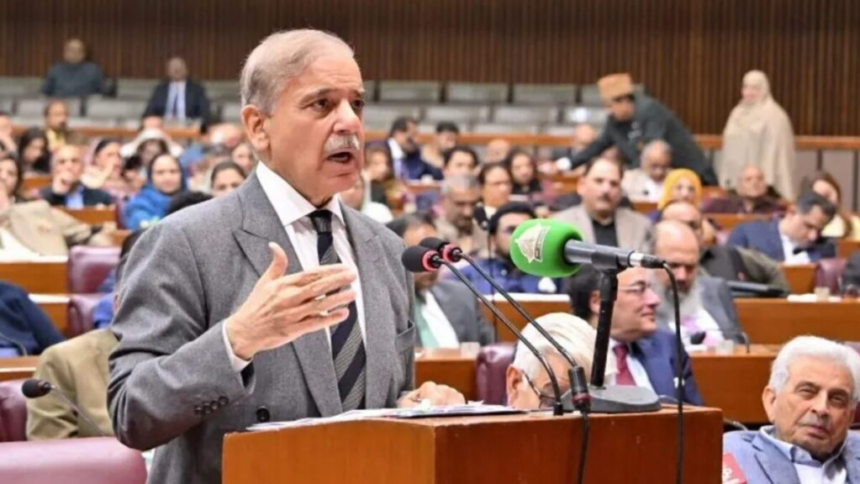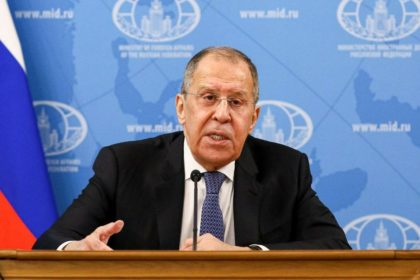RASC News Agency: Pakistan’s Prime Minister, Shehbaz Sharif, has accused the Afghanistani Taliban regime of fostering ties with India a relationship he claims has directly fueled a new wave of terrorist violence within Pakistan. Speaking in the National Assembly following the passage of the 27th Constitutional Amendment, Sharif asserted that the growing coordination between Kabul’s Taliban leadership and New Delhi has emboldened extremist groups and intensified cross-border attacks.
“The evidence is undeniable,” Sharif declared. “Foreign hands are visibly orchestrating terror inside Pakistan. It is no longer a secret to anyone.”
In a fiery address, the Prime Minister blamed both the Taliban and Indian intelligence agencies for the recent spate of bombings in Islamabad and South Waziristan, pledging a “firm and proportionate response” to what he described as a coordinated assault on Pakistan’s sovereignty.
Sharif revealed that one of the attackers killed in the assault on a military academy in South Waziristan was identified as an Afghanistani national. “Had our armed forces not intervened,” he said, “it could have been one of the most catastrophic terrorist incidents in recent history.”
Referring to the militants as “Khawarij” a term used by Pakistani authorities to describe the outlawed Tehrik-i-Taliban Pakistan (TTP) Sharif noted, “These extremists, many of whom were unfortunately Afghanistanis, have been sent to hell. Every cadet, student, and teacher was safely rescued.”
Reiterating his earlier statements, Sharif accused the TTP of operating from Afghanistan territory with tacit support from the Taliban, claiming that the network’s operations are “deeply intertwined with Indian backing.” Despite New Delhi’s denials, he insisted that “the evidence speaks louder than diplomacy.”
He elaborated:
“We have presented to the world irrefutable proof that the TTP and the Balochistan Liberation Army were operating from sanctuaries inside Afghanistan, in coordination with their Indian handlers. These facts were laid bare before the international community and no one has challenged or refuted them.”
Sharif described it as “a distortion of reality” to assume Pakistan’s enemies had no role in these attacks. “Such denial,” he said, “is like calling night a day.”
Issuing a stern warning to those he described as “enemies of Pakistan,” the Prime Minister declared:
“Let me make this unequivocally clear we know exactly who you are and where you hide. We have struck before, and we will strike again. Pakistan’s patience should never be mistaken for weakness.”
Turning to Pakistan’s diplomatic efforts, Sharif shed light on ongoing negotiations with the Taliban government, including recent talks in Istanbul, Turkey. He stated that Islamabad’s sole demand over the past two years has been for the Taliban to take decisive action against militant groups using Afghanistan territory as a launchpad for attacks inside Pakistan.
Sharif urged the Taliban leadership to abandon “false assurances and empty promises” and instead fulfill their obligations as a governing authority.
“Our demand is straightforward: prevent terrorism from emanating from your soil. Afghanistan’s rulers cannot continue to harbor militants while expecting diplomatic legitimacy from the world.”
His comments came after Rahmatullah Najib, Deputy Minister of Interior in the Taliban administration and a member of the negotiation team in Istanbul, made a controversial statement in Kabul. Najib suggested that if Pakistan were to stop labeling members of the Tehrik-i-Taliban Pakistan (TTP) as terrorists and instead call them “good people,” the Taliban might consider giving them sanctuary in Afghanistan.
“Why should we bring them into Afghanistan,” Najib asked rhetorically, “if you yourselves call them terrorists? Tomorrow you will accuse us of sheltering extremists.”
Meanwhile, Pakistan’s Defence Minister, Khawaja Asif, confirmed to reporters in the parliamentary corridors that the suicide bomber responsible for Tuesday’s blast in Islamabad was indeed an Afghanistani national. The attack claimed twelve lives and left several others injured.
The confirmation has fueled renewed outrage among Pakistan’s lawmakers and security officials, who accuse the Taliban of hypocrisy offering diplomatic smiles abroad while permitting cross-border terrorism at home.
Analysts argue that the Taliban’s continuing refusal to rein in militant proxies reflects not only their ideological alignment with jihadist groups but also their political dependency on networks like the TTP, which serve as instruments of coercion and leverage in regional affairs.
As tensions escalate, observers warn that Pakistan’s patience with Kabul’s inaction is wearing dangerously thin.
“If the Taliban persist in shielding terrorists under the guise of brotherhood,” a senior Pakistani official told RASC News, “they will eventually find themselves isolated not only from Pakistan but from the international community that once hesitantly gave them the benefit of the doubt.”






